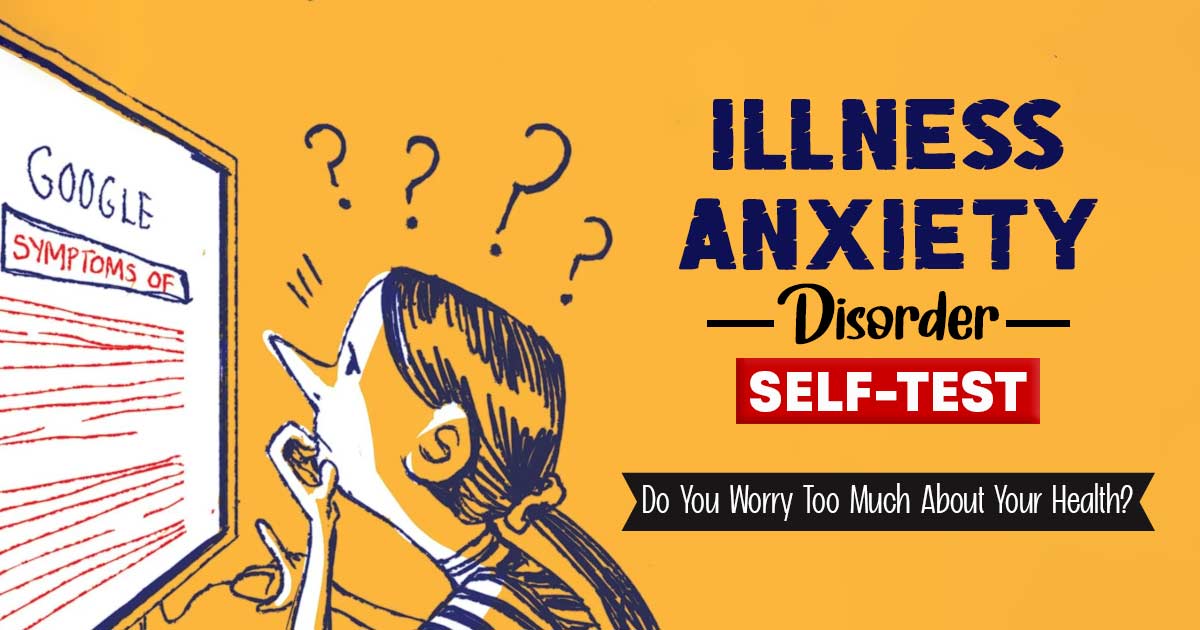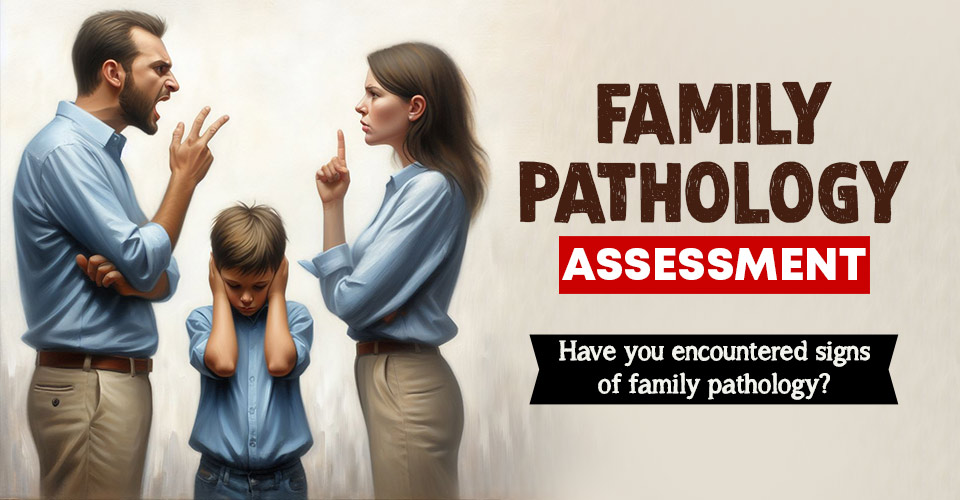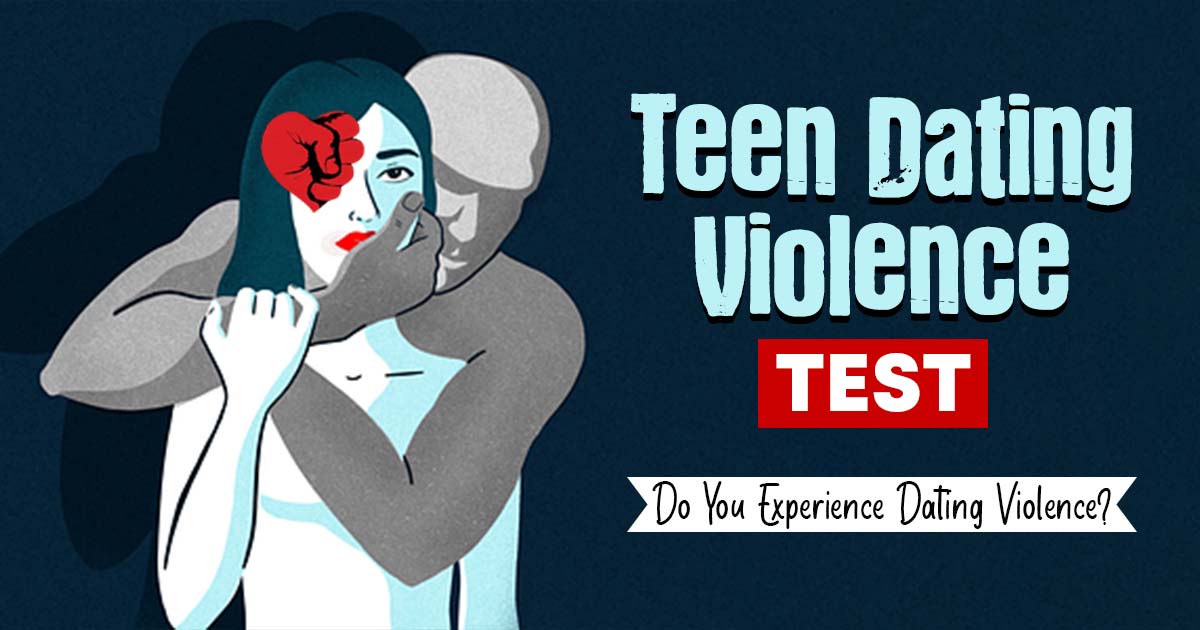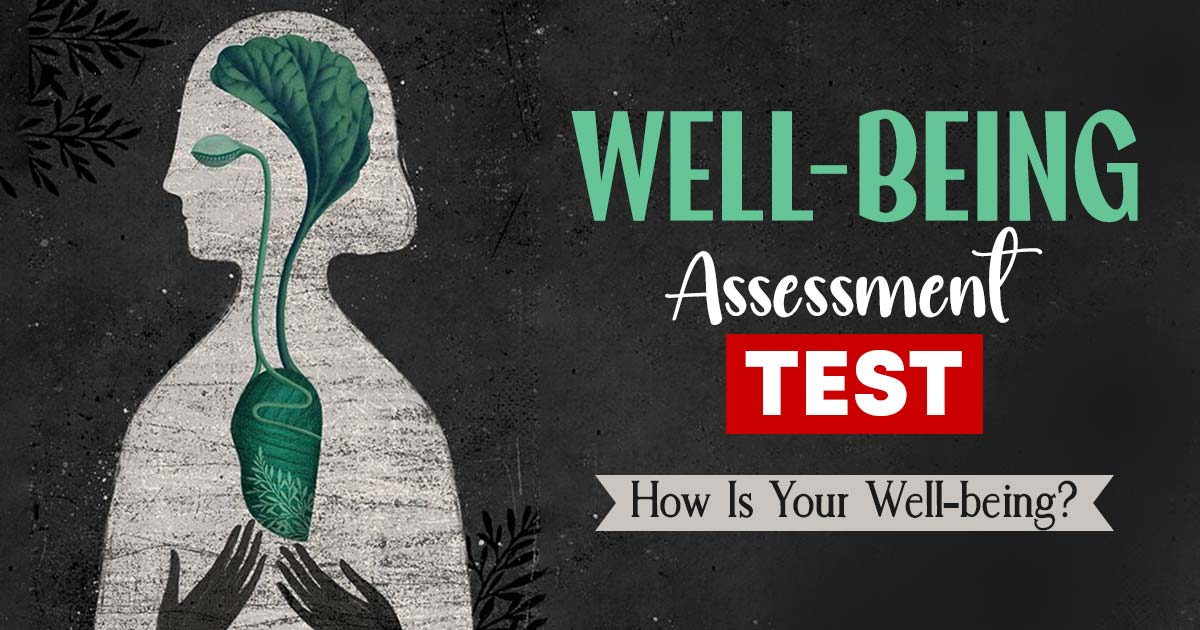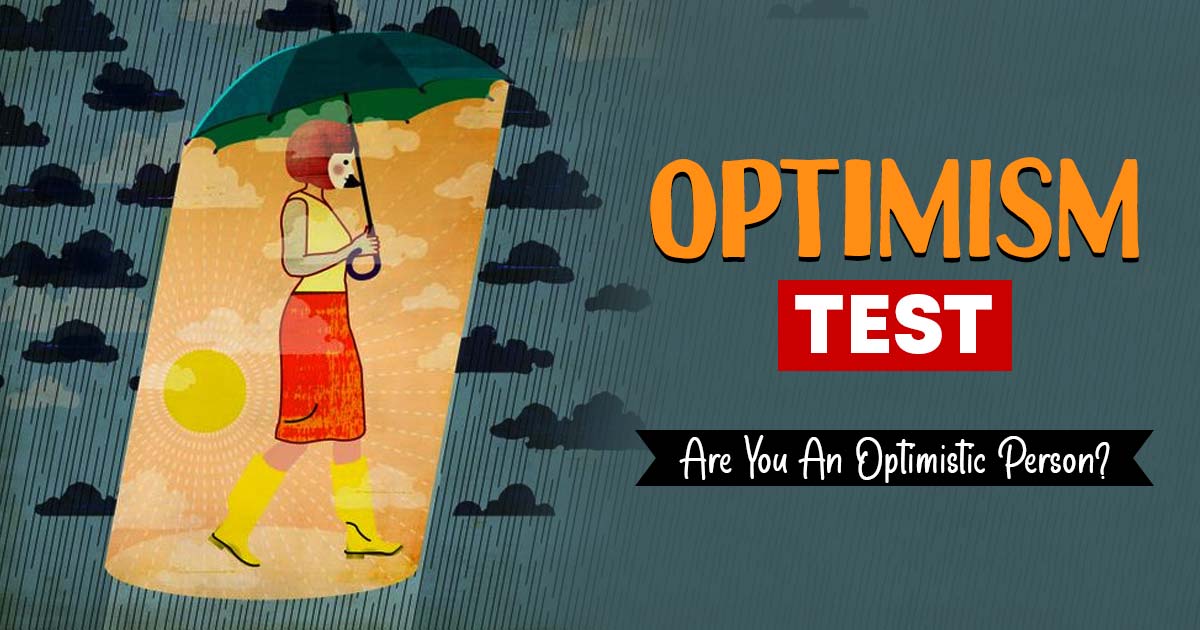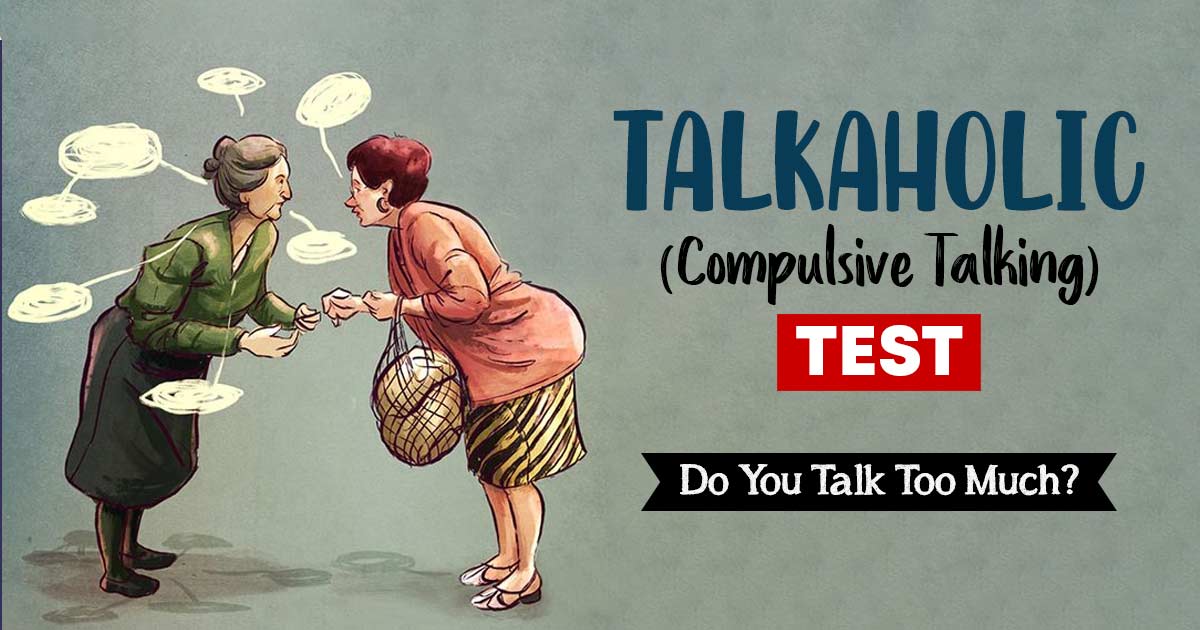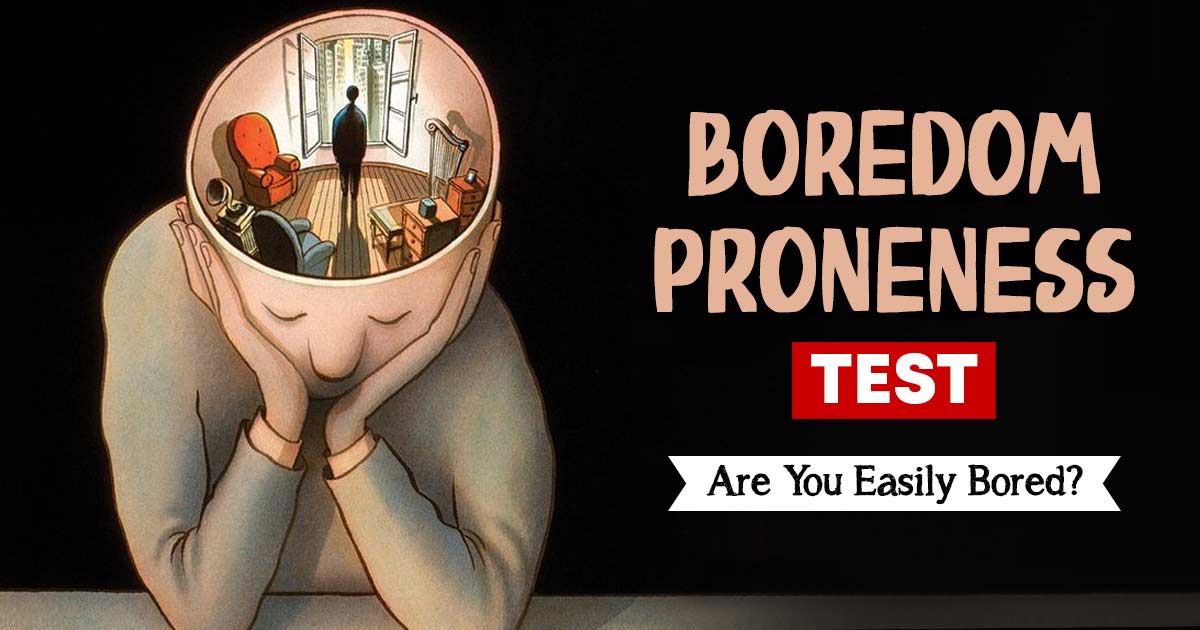Are you worried about developing a serious illness or medical condition? Do you frequently check for side effects of prescribed medication and feel distressed over health concerns? Take this illness anxiety disorder test to see if you may have Illness Anxiety Disorder.
What Is Illness Anxiety Disorder?
Illness Anxiety Disorder, also previously called hypochondria or hypochondriasis, is marked by unrealistic and irrational anxiety and fear that an individual might develop a serious medical condition or that they are at a high risk of becoming ill.
These people might tend to misinterpret their typical body functions as signs of illness. The symptoms of Illness Anxiety do not lead to a diagnosis of any serious medical condition after a medical diagnosis or any test report.
These persistent health-related worries make them distressful and interfere with their relationships, careers, and other domains of life.
Some of the symptoms of this disorder are –
- Being easily alarmed about health status
- Worrying that minor symptoms can cause a serious illness
- Avoiding people, places, or activities for fear of health risks
Instructions For Taking Illness Anxiety Disorder Test
Below is a list of questions that relate to life experiences common among people with Illness Anxiety. Please read each question carefully, and select the answers that suggest how often you have experienced the same or similar challenges in the past few months.
Please note: This illness anxiety disorder test is a self-assessment and not a diagnostic test.
Assessment Summary
0 of 15 Questions completed
Questions:
Information
You have already completed the assessment before. Hence you can not start it again.
Assessment is loading…
You must sign in or sign up to start the assessment.
You must first complete the following:
Results
Results
Your time:
Time has elapsed
You have reached 0 of 0 point(s), (0)
Earned Point(s): 0 of 0, (0)
0 Essay(s) Pending (Possible Point(s): 0)
Categories
- Mental Health Assessment 0%
-
No Signs Of Illness Anxiety Disorder
Your score indicates that you have no significant signs of Illness Anxiety Disorder. Your response shows that you do not keep any such worries in fear of forming an illness. Also, your response shows that you react to your typical bodily signs in quite a usual manner and do not get anxious thinking about a negative consequence regarding this condition.
However, it should be noted that this is just a basic screening tool and not meant for proper medical diagnosis. If you think the results do not accurately represent your thoughts and feelings, then we would encourage you to consult a mental health professional for accurate diagnosis and treatment.
Want to learn more?
The treatment of Illness Anxiety Disorder generally involves Cognitive Behavioural Therapy (CBT) with a combination of medications to reduce the level of anxiety and depressed feelings of an individual. This treatment aims to help the client to develop a better insight into health, illness, and other areas of a medical condition so that the person can acquire a better-coping strategy to deal with the anxiety-provoking patterns of behavior in the future. If you want to know how to seek help for yourself or help someone who you suspect to have signs of Illness Anxiety, talk to our psychologists to better understand what you can do to recover from it.
Disclaimer: The symptoms of Illness Anxiety would be diagnosed as a disorder, only when symptoms would persist for at least 6 months and would cause significant distress in social, occupational, personal, and other areas of daily functioning.
You can use our Mood Tracker to stay mindful of your mood every day, identify your innermost thoughts & emotions on a daily basis. It will aid you in doing all those things you love, while limiting activities that might dampen your mood.
-
Low Signs Of Illness Anxiety Disorder
Your score indicates that you have low significant signs of Illness Anxiety Disorder. Your response indicates that you might have slight worries about forming an illness, even typical bodily signs might also make you worried about that to a few extent. You also might get anxious slightly thinking about the negative consequence of your condition. You might also have a habit of frequently checking up on your typical health condition with your doctor and asking for assurance about your thoughts about illness.
However, it should be noted that this is just a basic screening tool and not meant for proper medical diagnosis. If you think the results do not accurately represent your thoughts and feelings, then we would encourage you to consult a mental health professional for accurate diagnosis and treatment.
Want to learn more?
The treatment of Illness Anxiety Disorder generally involves Cognitive Behavioural Therapy (CBT) with a combination of medications to reduce the level of anxiety and depressed feelings of an individual. This treatment aims to help the client to develop a better insight into health, illness, and other areas of a medical condition so that the person can acquire a better-coping strategy to deal with the anxiety-provoking patterns of behavior in the future. If you want to know how to seek help for yourself or help someone who you suspect to have signs of Illness Anxiety, talk to our psychologists to better understand what you can do to recover from it.
Disclaimer: The symptoms of Illness Anxiety would be diagnosed as a disorder, only when symptoms would persist for at least 6 months and would cause significant distress in social, occupational, personal, and other areas of daily functioning.
You can use our Mood Tracker to stay mindful of your mood every day, identify your innermost thoughts & emotions on a daily basis. It will aid you in doing all those things you love, while limiting activities that might dampen your mood.
-
Moderate Signs Of Illness Anxiety Disorder
Your score indicates that you have moderate significant signs of Illness Anxiety Disorder. Your response indicates that you might tend to have worries to some extent about forming an illness, where typical bodily signs might make you worried about that. Your response also shows that you might get anxious in some cases thinking about the negative consequence of your condition. You also seem to have a habit of frequently checking up on your typical health condition from the internet or with your doctor and asking for assurance about your thoughts about illness.
However, it should be noted that this is just a basic screening tool and not meant for proper medical diagnosis. If you think the results do not accurately represent your thoughts and feelings, then we would encourage you to consult a mental health professional for accurate diagnosis and treatment.
Want to learn more?
The treatment of Illness Anxiety Disorder generally involves Cognitive Behavioural Therapy (CBT) with a combination of medications to reduce the level of anxiety and depressed feelings of an individual. This treatment aims to help the client to develop a better insight into health, illness, and other areas of a medical condition so that the person can acquire a better-coping strategy to deal with the anxiety-provoking patterns of behavior in the future. If you want to know how to seek help for yourself or help someone who you suspect to have signs of Illness Anxiety, talk to our psychologists to better understand what you can do to recover from it.
Disclaimer: The symptoms of Illness Anxiety would be diagnosed as a disorder, only when symptoms would persist for at least 6 months and would cause significant distress in social, occupational, personal, and other areas of daily functioning.
You can use our Mood Tracker to stay mindful of your mood every day, identify your innermost thoughts & emotions on a daily basis. It will aid you in doing all those things you love, while limiting activities that might dampen your mood.
-
Severe signs of Illness Anxiety Disorder
Your score indicates that you have severe significant signs of Illness Anxiety Disorder. Your response indicates that you seem to have strong worries about forming an illness, regarding the typical bodily signs which might make you significantly distressful. Your response also shows that you tend to get very anxious in many cases about your health condition and frequently check on the internet/google about the side effects of medicines/tests prescribed by your doctor. Your response also seems that you tend to frequently consult your doctor and as well as talk to your nearby friends and family members to ask for reassurance about your thoughts about illness.
However, it should be noted that this is just a basic screening tool and not meant for proper medical diagnosis. If you think the results do not accurately represent your thoughts and feelings, then we would encourage you to consult a mental health professional for accurate diagnosis and treatment.
Want to learn more?
The treatment of Illness Anxiety Disorder generally involves Cognitive Behavioural Therapy (CBT) with a combination of medications to reduce the level of anxiety and depressed feelings of an individual. This treatment aims to help the client to develop a better insight into health, illness, and other areas of a medical condition so that the person can acquire a better-coping strategy to deal with the anxiety-provoking patterns of behavior in the future. If you want to know how to seek help for yourself or help someone who you suspect to have signs of Illness Anxiety, talk to our psychologists to better understand what you can do to recover from it.
Disclaimer: The symptoms of Illness Anxiety would be diagnosed as a disorder, only when symptoms would persist for at least 6 months and would cause significant distress in social, occupational, personal, and other areas of daily functioning.
You can use our Mood Tracker to stay mindful of your mood every day, identify your innermost thoughts & emotions on a daily basis. It will aid you in doing all those things you love, while limiting activities that might dampen your mood.
- 1
- 2
- 3
- 4
- 5
- 6
- 7
- 8
- 9
- 10
- 11
- 12
- 13
- 14
- 15
- Current
- Review
- Answered
- Correct
- Incorrect
-
Question 1 of 15
1. Question
Do you tend to get worried about having a severe disease or illness or a medical condition?
-
Question 2 of 15
2. Question
Do you tend to check your bodily signs?
-
Question 3 of 15
3. Question
Do you spend times discussing your health symptom with your family and friends?
-
Question 4 of 15
4. Question
Do you get anxious/tensed thinking about the consequences of your medical condition?
-
Question 5 of 15
5. Question
Do you tend to visit doctors to ensure that you do/do not have a disease?
-
Question 6 of 15
6. Question
Do you take medicines when you detect some worrying medical condition?
-
Question 7 of 15
7. Question
Do you believe that people undervalue their health condition?
-
Question 8 of 15
8. Question
Do you tend to check the side effects/consequences of medicines/treatment protocols on google/the internet?
-
Question 9 of 15
9. Question
Do you tend to seek assurance from others about your medical condition?
-
Question 10 of 15
10. Question
Do you feel that you are a healthy person?
-
Question 11 of 15
11. Question
Do you worry that you have a hidden serious health condition that is still undiagnosed and might ruin your life someday?
-
Question 12 of 15
12. Question
Do you consciously watch your breath and heartbeat?
-
Question 13 of 15
13. Question
Do you get afraid of confronting any medical reports because of the fear of a negative consequence?
-
Question 14 of 15
14. Question
Do you face difficulty accepting the health condition stated by your doctor and think that you are misdiagnosed?
-
Question 15 of 15
15. Question
Do your health-related tension/distressing thoughts disrupt your social, occupational, and other areas of daily functioning?

